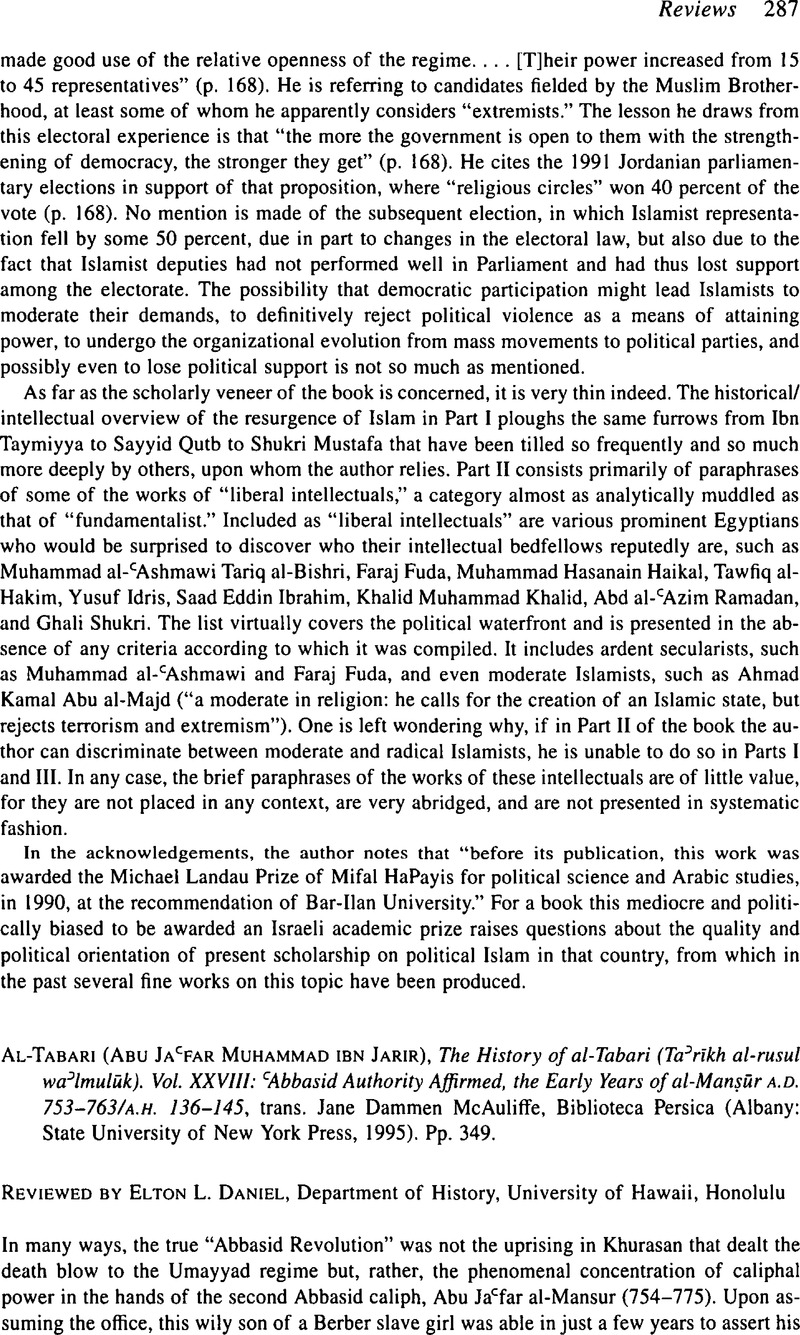No CrossRef data available.
Published online by Cambridge University Press: 23 April 2009

1 Indeed, readers now have the luxury of two such translations: Williams, John Alden, The Early ʿAbbasi Empire (Cambridge, 1988), 1:1–177,Google Scholar covers the same sections of al-Tabari (Tertia Series, 88–319) as the McAuliffe volume in the Tabari translation series. Curiously, there is no reference to the Williams work in the McAuliffe translation. It is not clear whether it was unavailable to the translator or she elected not to consult it in order not to bias her own work. In any case, both are excellent translations and yet markedly different from each other. It is particularly instructive to compare the two translations against each other and the Arabic original in order to sense how dramatically even slight changes in wording or decisions about where to add punctuation and paragraph divisions can affect the translation—as well as how susceptible al-Tabari's Arabic can be to quite contradictory but equally plausible interpretations.